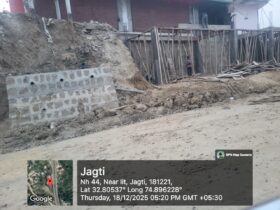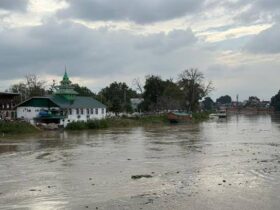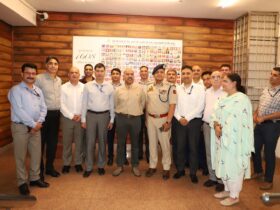Former Central Investigation Agency(CIA) official Bruce Riedel has come up with his new book ‘JFK’s Forgotten Crisis: Tibet, the CIA and the Sino-Indian war’, which mentions Pakistani former president Ayub Khan missed opportunity for Kashmir’s Freedom in 1962 .
The book revealed the fact that in 1962, Ayub Khan had demanded Kashmir from the US in return for not attacking India during China-India war
Riedel held that in 1962,Indian army had reduced to splinters when it was busy in fighting the war with China and during that stage, Pakistan had a best opportunity to attack India.
According to the Riedel, the then US president John F Kennedy played a decisive role in preventing the attack from Pakistan. Kennedy and the then UK premier Harold Macmillan pressurised Pakistan saying if it attacks India then it will also be declared an invader like China, says Riedel.
According to the then US ambassador in India, Ayub Khan opposed the US advice but when he was told that President Kennedy would make this request by writing him a letter then he became ready to lend his ears to it.
Riedel said that Ayub laid the pre condition that US should promise to adopt a stern attitude against India on the Kashmir issue in return for it. The book further says , ”If we look into it then Ayub Khan was saying US and Pakistan should jointly force India to hand over Kashmir to Pakistan.”
As mentioned in the book, Ayub made no promise with Kennedy and he also expressed his displeasure as the US supplied arms to India against China without informing Pakistan.
Ayub realized that US breached a pact with Pakistan wherein it was laid down that despite a Chinese attack, US would not extend any military aid to India without the approval of Pakistan.
On realising the breach of agreement, Ayub Khan started the 1965 war against India on his own but the arms supplied by US to India for using them against China led to failure in war.
Author Riedel further says in his book that US and UK had assured Pakistan they would find a solution to the Kashmir issue through dialogue with India after war.
”When Ayub Khan asked about it following the war, the then US ambassador replied to Washington that Nehru was absolutely split after India’s defeat at the hands of China and he was not enjoying such credibility in local politics that he could take any vital decision on the Kashmir issue.”

















Leave a Reply